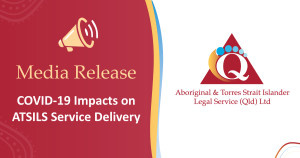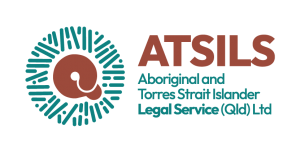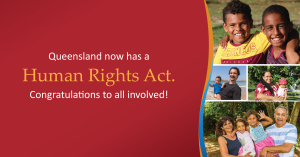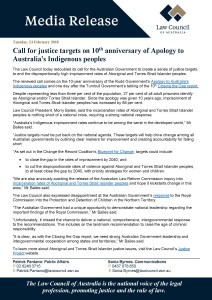 The Aboriginal and Torres Strait Islander Legal Service (QLD) LTD (ATSILS) advises that all pre court and court circuits into the Torres Strait Islands, Northern Peninsula Area, Gulf of Carpentaria and Cape Regions have been suspended immediately due to the potential health vulnerability of our people in remote communities.
The Aboriginal and Torres Strait Islander Legal Service (QLD) LTD (ATSILS) advises that all pre court and court circuits into the Torres Strait Islands, Northern Peninsula Area, Gulf of Carpentaria and Cape Regions have been suspended immediately due to the potential health vulnerability of our people in remote communities.
ATSILS (QLD) is committed to supporting efforts from all levels of government to reduce the spread of COVID-19 to communities. This decision to suspend service in these regions is a critical response that aligns with the Australian Government’s – National Indigenous Australians Agency’s advice, to carefully balance community needs with the public health implications of any travel.
In addition to travel restrictions to our remote communities, ATSILS will also be looking to limit travel by staff to and from communities in other regions of the state (including urban and regional) for non-essential purposes, where options such as tele/videoconference or postponement are reasonable alternatives. In addition, pre-arranged events requiring people to travel to or from communities will be deferred indefinitely. Several remote Aboriginal and Torres Strait Islander communities are also starting to restrict access to their community for non-essential travel.
CEO Shane Duffy said, “ATSILS will continue to provide essential services with increased caution to protect staff and the community of which we service from the potential spread of COVID-19. We have a response plan in place to increase protection for our staff, clients and communities and are continually implementing business continuity arrangements to minimise disruption to service delivery.”
In line with the advice from the Australian Government, the benefits of continuing delivery of services, needs to be balanced with managing the risk of potentially spreading the virus within the community.
The Aboriginal and Torres Strait Islander Legal Service will continue to monitor this rapidly evolving situation related to COVID-19 and update staff, clients, community and stakeholders of any further service delivery adjustments accordingly.
For further information regarding access to legal services during this time please contact an ATSILS office in your region: https://atsils.org.au/contact/
Email: info@atsils@org.au
Call: 1800 012 255 – Free call 24/7 for urgent criminal law matters.
Media Contact for Mr Shane Duffy: Joshua.herd@atsils.org.au













